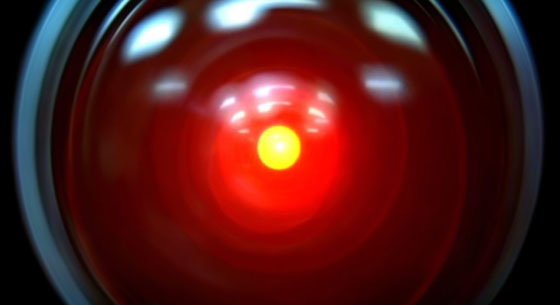
You're not trying to replace me are you, Dave?
No surprise as quantum and uncertainty seem to go hand and hand.
A drop of water can be infinitely faster than any computer... when simulating the dynamics of a drop of water. What kind of calculations are the quantum computers claiming speedups on?
Not sure what to make of this.
A quantum computer would be no better at multiplying two numbers than a classical computer. In fact, it may be SLOWER.
However, a quantum computer would be RADICALLY faster at factoring a large composite number (e.g., the product of two large prime numbers) than a classical computer. BTW, this particular math problem is the foundation of most public key cryptography, which in turn is the foundation of a TON of the security protocols on the Internet and in online bankng and commerce.
So, there are two possibilities here: (1) The people writing this study are ignorant of the classes of problems for which using qbits versus bits provides an advantage or (2) the D-Wave is a scam. My bet is (1).
The classic example of quantum entanglement is called the EPR paradox. In a simplified version of this case, consider a particle with quantum spin 0 that decays into two new particles, Particle A and Particle B. Particle A and Particle B head off in opposite directions. However, the original particle had a quantum spin of 0. Each of the new particles has a quantum spin of 1/2, but because they have to add up to 0, one is +1/2 and one is -1/2.
This relationship means that the two particles are entangled. When you measure the spin of Particle A, that measurement has an impact on the possible results you could get when measuring the spin of Particle B. And this isn't just an interesting theoretical prediction, but has been verified experimentally through tests of Bell's Theorem.
One important thing to remember is that in quantum physics, the original uncertainty about the particle's quantum state isn't just a lack of knowledge. A fundamental property of quantum theory is that prior to the act of measurement, the particle really doesn't have a definite state, but is in a superposition of all possible states. This is best modeled by the classic quantum physics thought experiment, Schroedinger's Cat, where a quantum mechanics approach results in an unobserved cat that is both alive and dead simultaneously.
One way of interpreting things is to consider the entire universe as one single wavefunction. In this representation, this "wavefunction of the universe" would contain a term that defines the quantum state of each and every particle. It is this approach that leaves open the door for claims that "everything is connected," which often gets manipulated (either intentionally or through honest confusion) to end up with things like the physics errors in The Secret.
Though this interpretation does mean that the quantum state of every particle in the universe affects the wavefunction of every other particle, it does so in a way that is only mathematical. There is really no sort of experiment which could ever - even in principle - discover the effect in one place showing up in another location.

You're not trying to replace me are you, Dave?
Oh, then soon the NSA will be able to spy on everyone at almost the speed of light?
“can be both 1s and 0s at the same time”
I’m gonna have to call BS on that one.